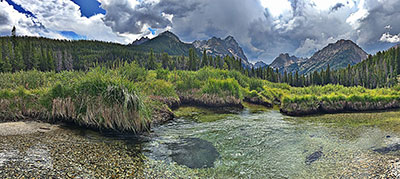Problem: During a scheduled Rural Community Assistance Corporation (RCAC) rate study project, Wilder officials discovered several unused underground tanks in town.
Solution: RCAC completed the rate study and stayed on to assist with a source water protection plan.
Wilder is a small bedroom community outside Boise where residents earn a $30,000 a year median household income. Its wastewater system uses lagoons to treat sewage and then discharges into an irrigation canal. In recent years, the treated water from the lagoon system exceeded permitted levels, which prompted the city to explore funding options to improve the system. Wilder requested that RCAC complete a rate study to determine the appropriate rates to fund system improvements.
During the rate study, RCAC and Wilder partnered to improve operations in other areas as well. RCAC and Wilder developed an emergency response plan for both its drinking water and wastewater systems. Additionally, RCAC helped the city update its Source Water Protection Plan. Initially, the city sought to improve its loan application, but soon gathered a team to conduct a comprehensive review of groundwater issues. The team accessed Idaho Department of Environmental Quality (IDEQ) databases that were previously unavailable to local officials. The database showed various storage tanks located beneath Wilder that had held everything from fuel to wastewater decades earlier. Wilder removed or emptied most of the tanks in the early 2000s but the current city officials didn’t know about their existence. The extensive research also revealed that Wilder’s groundwater sources were exceptionally shallow.
The committee assessed the potential risks to the town’s drinking water from the various tanks, and established guidelines for soil testing and air quality control from contaminated soil. Luckily, Wilder closely followed most of the mitigation procedures in place in the early 2000s; however, soil monitoring continues to this day. Beyond addressing the underground tanks, the plan’s scope included reviewing industrial permits with regulatory agencies, emergency response planning and street sweeping to prevent surface oils from contaminating soils. The group also brought the mayor, board of supervisors, and several businesses together to brief them on the various tank’s full history and how it could affect source water.
The city council adopted the Source Water Protection Plan on Jan. 6, 2021. RCAC will assist the town to write a source water protection grant request to enact measures in the plan. The town will conduct a bonding vote to adopt the wastewater rate study recommendations in May 2021.

